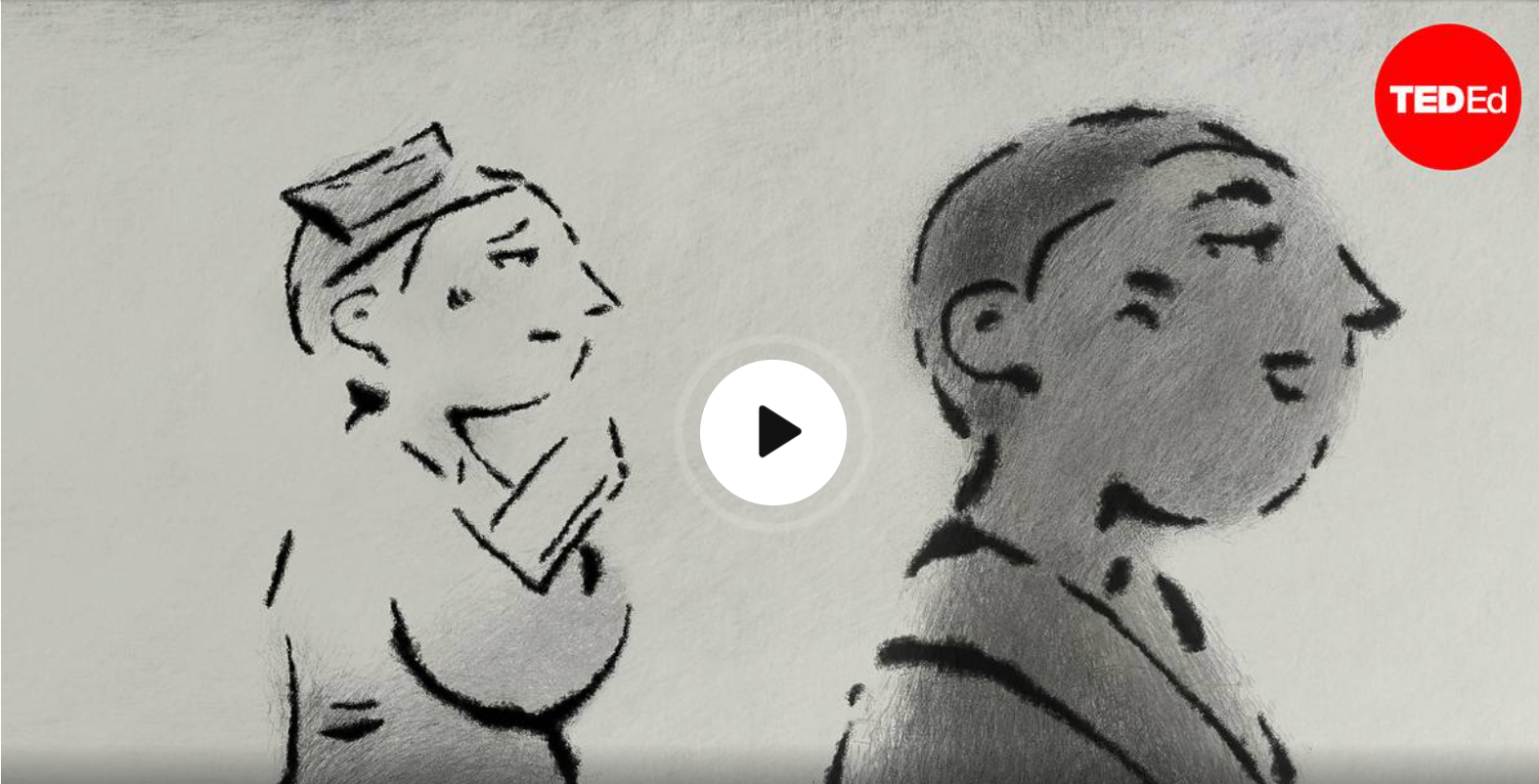Why do we feel nostalgia
In the late 17th century, a medical student named Johannes Hofer noticed a strange illness affecting Swiss mercenaries serving abroad.
在17世纪末, 一个叫做约翰内斯·霍弗的医科学生 注意到了一种奇怪的疾病 (这种疾病)侵袭着在国外工作的瑞士雇佣兵
Its symptoms, including fatigue, insomnia, irregular heartbeat, indigestion, and fever were so strong, the soldiers often had to be discharged.
这种病的发病症状, 包括疲劳、 失眠、 不规律的心脏跳动、 消化不良、 以及发高烧, 这些士兵通常不得不退伍。
As Hofer discovered, the cause was not some physical disturbance, but an intense yearning for their mountain homeland.
霍弗发现,他们的病因并非躯体障碍, 而是一种对他们故土的强烈思慕之情。
He dubbed the condition nostalgia, from the Greek “nostos” for homecoming and “algos” for pain or longing.
他把这种病情称为思乡病, (这个词)的回家之意 取自希腊语“nostos”, 痛苦和渴望之意取自词语“algos”。
At first, nostalgia was considered a particularly Swiss affliction.
起初,思乡病被认作是一种只发生在瑞士的疾病
Some doctors proposed that the constant sound of cowbells in the Alps caused trauma to the ear drums and brain.
一些医生提出是阿尔卑斯山中连续不断的牛铃声 导致了鼓膜和脑部的创伤。
Commanders even forbade their soldiers from singing traditional Swiss songs for fear that they’d lead to desertion or suicide.
司令们甚至禁止他们的士兵唱传统瑞士歌曲 以防他们指引士兵擅离军队或者自杀。
But as migration increased worldwide, nostalgia was observed in various groups.
但是随着移民的全球化,人们注意到 思乡病出现在许多群体中。
It turned out that anyone separated from their native place for a long time was vulnerable to nostalgia.
原来,任何离开故土很久的人 都容易患上思乡病。
And by the early 20th century, professionals no longer viewed it as a neurological disease, but as a mental condition similar to depression.
可是到了20世纪前期, 专家们已不再将它看作一种神经疾病了, 而看作是一种类似于抑郁症的心理疾病。
Psychologists of the time speculated that it represented difficulties letting go of childhood, or even a longing to return to one’s fetal state.
当时的心理学家推测 它反映了忘掉儿童时代有多困难, 或说甚至是一种对回到某人婴儿时期的渴望。
But over the next few decades, the understanding of nostalgia changed in two important ways.
但是在接下来的几十年中, 对思乡病的认知在两个重要的方面发生了变化。
Its meaning expanded from indicating homesickness to a general longing for the past.
它的含义从表明思乡之情扩展为 一种对过去的普遍向往。
And rather than an awful disease, it began to be seen as a poignant and pleasant experience.
而且并非一种令人厌恶的疾病, 它开始被看作是一次心酸而又愉快的体验。
Perhaps the most famous example of this was captured by French author Marcel Proust.
或许与此有关的出名的实例 要数法国作家马塞尔·普鲁斯特为最了。
He described how tasting a madeleine cake he had not eaten since childhood triggered a cascade of warm and powerful sensory associations.
他描述了品尝一块儿自小时候起 再没吃过的玛德琳蛋糕 是怎样触发了他温暖而强烈的感官联想。
So what caused such a major reversal in our view of nostalgia?
因此,造成我们对怀旧情结的看法 改变如此之大的原因是什么?
Part of it has to do with science.
科技肯定与此有关。
Psychology shifted away from pure theory and towards more careful and systematic empirical observation.
心理学由纯理论转变为 更谨慎系统的观察实践。
So professionals realized that many of the negative symptoms may have been simply correlated with nostalgia rather than caused by it.
因此专家们发现很多负面症状可能仅仅是与思乡病有关 可能仅仅是与怀旧情结有关 而非由它引起。
And, in fact, despite being a complex emotional state that can include feelings of loss and sadness, nostalgia doesn’t generally put people in a negative mood.
实际上,除了在处于复杂的情感状态时 一个包含着失落与伤心的状态 怀旧情结并不总是使人沉浸在消极情绪中。
Instead, by allowing individuals to remember personally meaningful and rewarding experiences they shared with others, nostalgia can boost psychological well-being.
恰恰相反,若是允许个体记下就他们个人而言 那些与他人一起的意义非凡而又有益的经历, 那么怀旧情结有利于心理健康。
Studies have shown that inducing nostalgia in people can help increase their feelings of self-esteem and social belonging, encourage psychological growth, and even make them act more charitably.
研究发现引起人们的怀旧情结 有助于提高他们的自尊心和社会归属感, 激励心理成长, 甚至使他们变得更加仁爱。
So rather than being a cause of mental distress, nostalgia can be a restorative way of coping with it.
因此,并非一个心理痛苦的诱因, 怀旧情结可以是一个帮助恢复的应对办法。
For instance, when people experience negative emotional states, they tend to naturally use nostalgia to reduce distress and restore well-being.
例如,当人们陷于消极的情绪状态时, 他们倾向于自然而然地回想过去,借此减轻痛苦 并恢复健康。
Today, it seems that nostalgia is everywhere, partially because advertisers have discovered how powerful it is as a marketing technique.
如今,怀旧情结似乎随处可见, 部分原因是广告商发现了它的影响力之大 当它作为一个市场营销手段时。
It’s tempting to think of this as a sign of us being stuck in the past, but that’s not really how nostalgia works.
人们很容易将怀旧情结看作 一个昭示着我们沉湎过去的信号, 但那并不真的是它的用途。
Instead, nostalgia helps us remember that our lives can have meaning and value, helping us find the confidence and motivation to face the challenges of the future.
取而代之的是,怀旧情结帮助我们牢记 我们的生命可以是有意义与价值的, 帮助我们找到信心、寻得动力 来面对未来的挑战。

